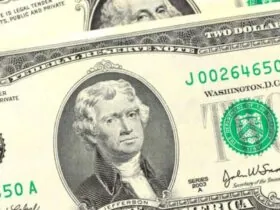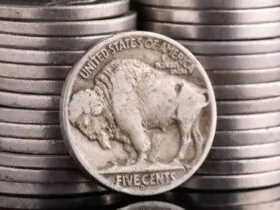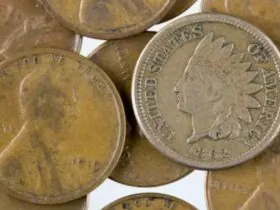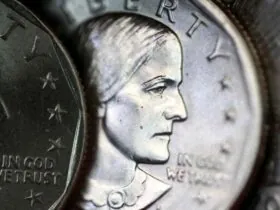A rare and historical piece of currency, a $500 banknote from the 1930s, is set to be auctioned off at Hansons Auctioneers in Derbyshire, UK, on June 26. This note, part of a larger collection of rare U.S. banknotes discovered in Wales, is expected to attract significant attention from collectors and enthusiasts alike. Below, we explore why this specific note is considered ultra-rare and what makes it so valuable in today’s market.
The Historical Significance of the $500 Bill
This Article Includes [hide]
The $500 bill, printed in 1934, is a piece of American history. While larger denominations such as $1,000, $5,000, and $10,000 were once common, the $500 note itself was relatively rare even when it was in circulation. William Hayward, a coin and banknote valuer at Hansons, emphasized how unusual it was to even possess such a large sum of money during the 1930s. It was not the sort of currency one would carry casually in their wallet, making it a noteworthy example of monetary history.
Why is This Banknote So Rare?
Several factors contribute to the rarity of this $500 note:
- Historical Context: In 1934, the United States was still dealing with the effects of the Great Depression, and a $500 note represented a substantial amount of money, more than most people would ever handle.
- Unredeemed Status: This particular banknote has not been redeemed, meaning it is still considered legal tender. As a result, it retains its full value as $500, which, adjusted for inflation, is equivalent to approximately $11,619.17 today. The fact that this note has not been returned or destroyed adds to its rarity and appeal.
- Discontinuation of the $500 Bill: In 1969, the U.S. government officially discontinued the issuance of large-denomination bills like the $500 note. The Bureau of Engraving and Printing (BEP) ceased printing $500 bills after 1945, making those still in circulation particularly valuable.
- Limited Use: These high-denomination bills were typically used for large transactions, such as land or property purchases. This adds an air of exclusivity, as these bills were not commonly encountered in everyday life.
The Auction Details
The $500 banknote will be auctioned by Hansons Auctioneers, with a guide price set between £800 and £1,000 (around $1,000 to $1,260). Considering the note’s rarity and historical value, it is expected to sell for a much higher price, depending on the bidding. The auction will take place on June 26, and collectors of rare U.S. currency are eagerly anticipating the oportunity to own such a unique piece of history.
Conclusion
This $500 banknote from the 1930s is a testament to the rich history of U.S. currency. Its rarity, unredeemed status, and the discontinuation of large-denomination bills make it a prized item for collectors. As it heads to auction, its value is likely to rise, given the limited availability of such notes. Whether you are a collector or simply interested in the fascinating world of rare banknotes, this auction is sure to be a must-watch event.







Leave a Reply